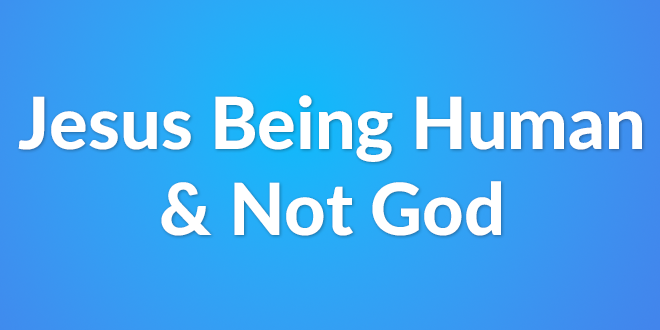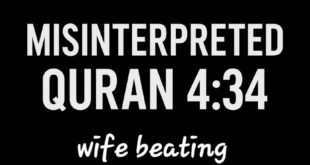بسم الله الرحمن الرحيم
Refuting the Deification of Jesus in Chapter At-Tawbah 9:31
A Response from Arabic Grammar, Islamic Theology, and Christian Scripture
The Verse in Question
Surah At-Tawbah (9:31) says:
“اتَّخَذُوا أَحْبَارَهُمْ وَرُهْبَانَهُمْ أَرْبَابًا مِّن دُونِ اللَّهِ وَالْمَسِيحَ ابْنَ مَرْيَمَ ۖ وَمَا أُمِرُوا إِلَّا لِيَعْبُدُوا إِلَٰهًا وَاحِدًا ۖ لَا إِلَٰهَ إِلَّا هُوَ ۚ سُبْحَانَهُ عَمَّا يُشْرِكُونَ”
“They have taken their rabbis and monks as lords besides Allah, and [also] the Messiah, the son of Mary. And they were not commanded except to worship one God; there is no deity except Him. Exalted is He above whatever they associate with Him.”
Some Christians interpret this verse to mean that Islam acknowledges Jesus (peace be upon him) as one of the deities worshiped besides Allah, due to the phrasing “وَالمَسِيحَ” (and the Messiah). However, this understanding collapses when analyzed from three foundational perspectives:
Arabic grammar and rhetoric
Islamic theology
Christian scripture
1. Arabic Linguistic Refutation:
The Power of التقديم والتأخير altaqdim wa altakhir
What is التقديم والتأخير(altaqdim wa altakhir) ?
التقديم والتأخير is a rhetorical device in Arabic where sentence components are intentionally rearranged—placing what normally comes later at the beginning, or vice versa. This technique is used to but not limited to:
Emphasize specific ideas
Enhance rhetorical beauty
Add suspense or focus
Its Purpose in Surah At-Tawbah 9:31
In the phrase:
“اتخذوا أحبارهم ورهبانهم أربابًا من دون الله والمسيح ابن مريم“
The natural word order would have been:
“اتخذوا أحبارهم ورهبانهم والمسيح ابن مريم أربابًا من دون الله“
However, “أحبارهم ورهبانهم” (ahbarahom wa rohbanahom ) is moved forward (تقديم) to highlight the severity of deifying religious scholars and monks—who are mere humans.
The rhetorical eloquence of taqdeem (advancing elements in a sentence) here is to highlight the ugliness of the act:
Placing “their rabbis and monks” first as lords emphasizes the extent of their deviation—because these are ordinary men, yet they were elevated to the status of divine beings. (Which means they used to go to their scholars, that changed the laws of the book and made what is permissible impermissible and vice versa)
As for the Messiah (peace be upon him), he is a noble prophet with dignity, so their exaggeration regarding him is less shocking than the deification of rabbis and monks.
This shows that the verse rhetorically condemns the deification of scholars and monks more than it condemns the misguided view of the Messiah.
Further Evidence: The Role of العطف ala’tf (Conjunction)
In Arabic, the conjunction “و” wa (and) grammatically links what comes after it to what came before—unless the structure or meaning suggests otherwise. Let’s examine the full segment:
“أربابًا من دون الله والمسيحَ ابن مريم”
At first glance, some might assume that the Messiah is included in “اللَّه” due to the فتحة (fatḥah) on “المسيحَ” almasih , suggesting he is part of what was substituted. This is incorrect for two reasons:
“المسيح” is منصوب mansoob (accusative) because it is part of the objects of the verb اتخذوا itakhatho (they took).
“من دون الله” min don allhi is a جار ومجرور jar wa majroor (prepositional phrase) modifying “أربابًا” arbaban , meaning: “lords besides Allah”.
Hence:
أحبارهم، ورهبانهم، والمسيح ahbarahom wa rohbanahom wa almasiih are all objects (مفعول به) maf3ool bih of the verb “اتخذوا”.itakhathoo
The meaning is: They took their rabbis, monks, and the Messiah as lords besides Allah—not in place of Allah and the Messiah.
This makes it grammatically clear: the Messiah is not being linked to Allah as a deity.
Objection: Isn’t “المسيح” a Diptote (ممنوع من الصرف) mamanoo3 min alsarf?
Some claim that “المسيح” almasiih is a non-Arabic proper noun, making it ممنوع من الصرف mamnoo3 min alsarf (diptote), which takes a fatḥah in the genitive case, and therefore, it must be connected to “اللَّه”. This is a misunderstanding.
Response:
“المسيح” almasiih is not a foreign name. It comes from the Arabic root “مسح” Masaha (to wipe or anoint). Scholars explain:
If it is a اسم فاعل ism fa3il (active participle), it means “the one who wipes”, due to Jesus healing by touch.
If it is a اسم مفعول ism maf3ool (passive participle), it means “the one who is wiped/blessed”.
As Imam alraghib alasfahani said:
“سمي عيسى عليه السلام مسيحاً لكونه ماسحاً في الأرض، أو لأنه كان يمسح ذا العاهة فيبرأ، أو لأنه مسح بالبركة.”
‘Isa (Jesus), peace be upon him, was called al-Masih (the Messiah) because:
he was one who traveled extensively across the land (ماسحاً في الأرض),
or because he used to wipe (touch) those with ailments, and they would be cured,
or because he was anointed with blessing (مسح بالبركة).
This proves that “المسيح”almasih is an Arabic term, not an imported proper noun, so the diptote rule doesn’t apply. Its accusative form here supports the correct grammatical reading: that he was taken as a lord besides Allah, not as deity with Allah.
2. Islamic Theology: Jesus Is Not God
Islamic doctrine is unequivocal in its rejection of Jesus as divine. The Qur’an clearly defines his role:
Surah An-Nisa’ 171-172:
“The Messiah, son of Mary, was no more than a messenger…”
Surah Al-Ma’idah 75:
“The Messiah, son of Mary, was no more than a messenger… his mother was a woman of truth.”
Surah Al-Imran 59:
“Indeed, the likeness of Jesus to Allah is as that of Adam…”
Surah Al-Ma’idah 116-117:
Allah asks: ‘Did you say to the people, “Take me and my mother as gods besides Allah?”’ He replied: ‘Glory be to You! I would never say what I had no right to say.’
Surah Al-Mu’minun 91:
“Never did Allah take a son, nor was there ever any god besides Him.”
Prophetic Sayings (Ahadith):
Bukhari 3445:
“Do not exaggerate in praising me as the Christians praised the son of Mary… I am only a servant. So call me: the Servant of Allah and His Messenger.”
Bukhari 3443:
“In this world and the Hereafter, I am the closest of all people to Jesus, son of Mary… The prophets are paternal brothers, and their religion is one.”
Conclusion from Islamic Theology:
Jesus is a revered prophet—not a deity. The Qur’an and Sunnah consistently affirm his humanity and his servanthood to Allah.
3. Christian Theology: Jesus Never Claimed Divinity
Even within Christian scriptures, Jesus is portrayed as subordinate to God:
Key Biblical Passages:
John 17:3 – “…the only true God, and Jesus Christ whom you have sent.”
Mark 10:18 – “Why do you call me good? No one is good—except God alone.”
Matthew 24:36 – “No one knows the day or hour, not even the Son…”
John 20:17 – “I ascend to my Father and your Father, to my God and your God.”
1 Timothy 2:5 – “There is one God and one mediator… the man Christ Jesus.”
Acts 2:22 – “Jesus… a man approved by God among you…”
John 5:30 – “I can do nothing on my own.”
John 8:40 – “…a man who told you the truth I heard from God.”
Isaiah 42:1 – “Here is My servant, whom I uphold.”
Revelation 1:1 – “ The revelation from Jesus Christ, which God gave him to show his servants what must soon take place. He made it known by sending his angel to his servant John.”
Conclusion from Christian Theology:
Jesus consistently identifies himself as a servant of God—not God Himself. Those who knew him also saw him this way. The doctrine of the Trinity developed later and is not part of his direct teachings.
Final Conclusion
When we analyze Surah At-Tawbah 9:31 through:
*Arabic Grammar – the structure and balāghah confirm that Jesus is not included in the object of worship with Allah.
*Islamic Theology – the Qur’an and Hadith affirm Jesus is a prophet, not divine.
*Christian Scripture – Jesus is presented as a servant and human, not God.
It becomes clear that the Christian claim about this verse is incorrect both linguistically and theologically. Rather than supporting deification, the verse is a powerful condemnation of shirk (associating others with Allah)—whether it be priests, monks, or prophets.
“There is no god but Allah. Exalted is He above what they associate with Him.”
جزاك الله خيرا
 World Dawah Quran & Sunnah through understanding of Salaf
World Dawah Quran & Sunnah through understanding of Salaf

